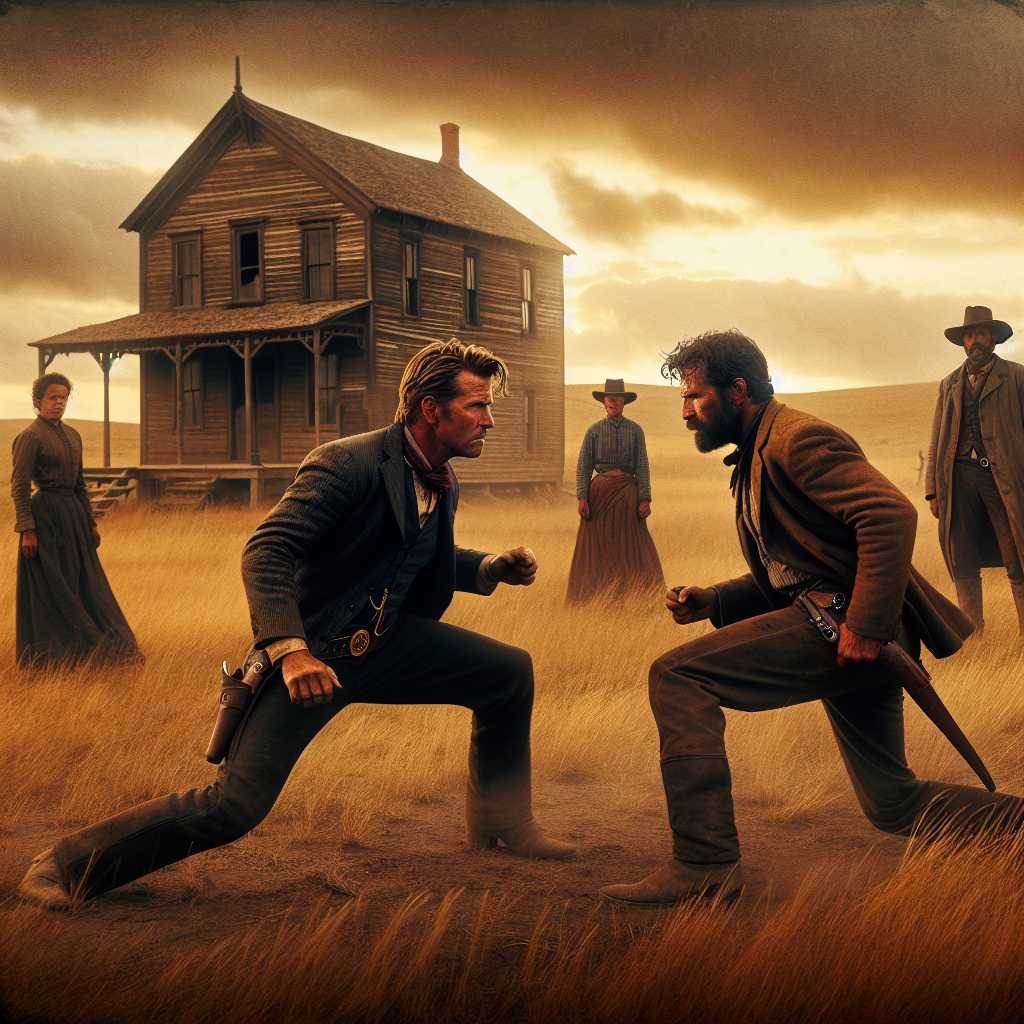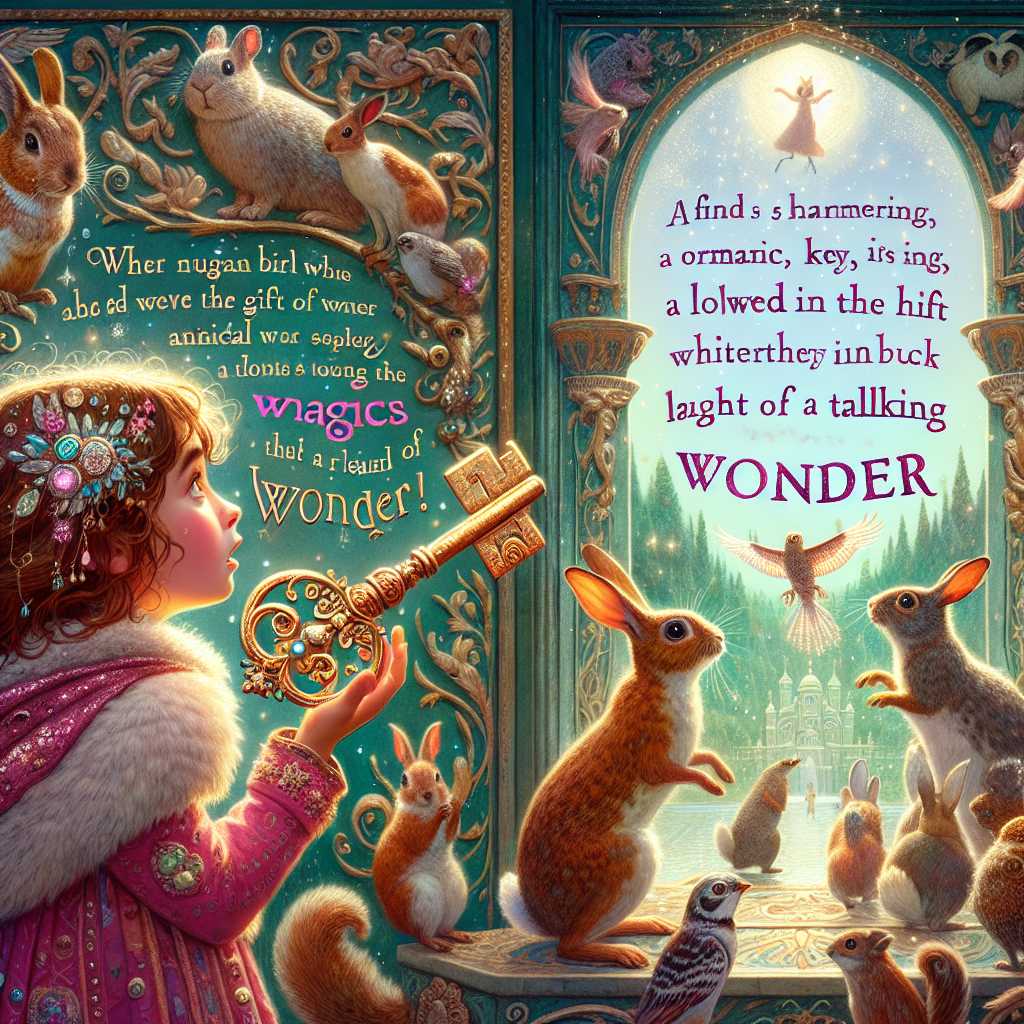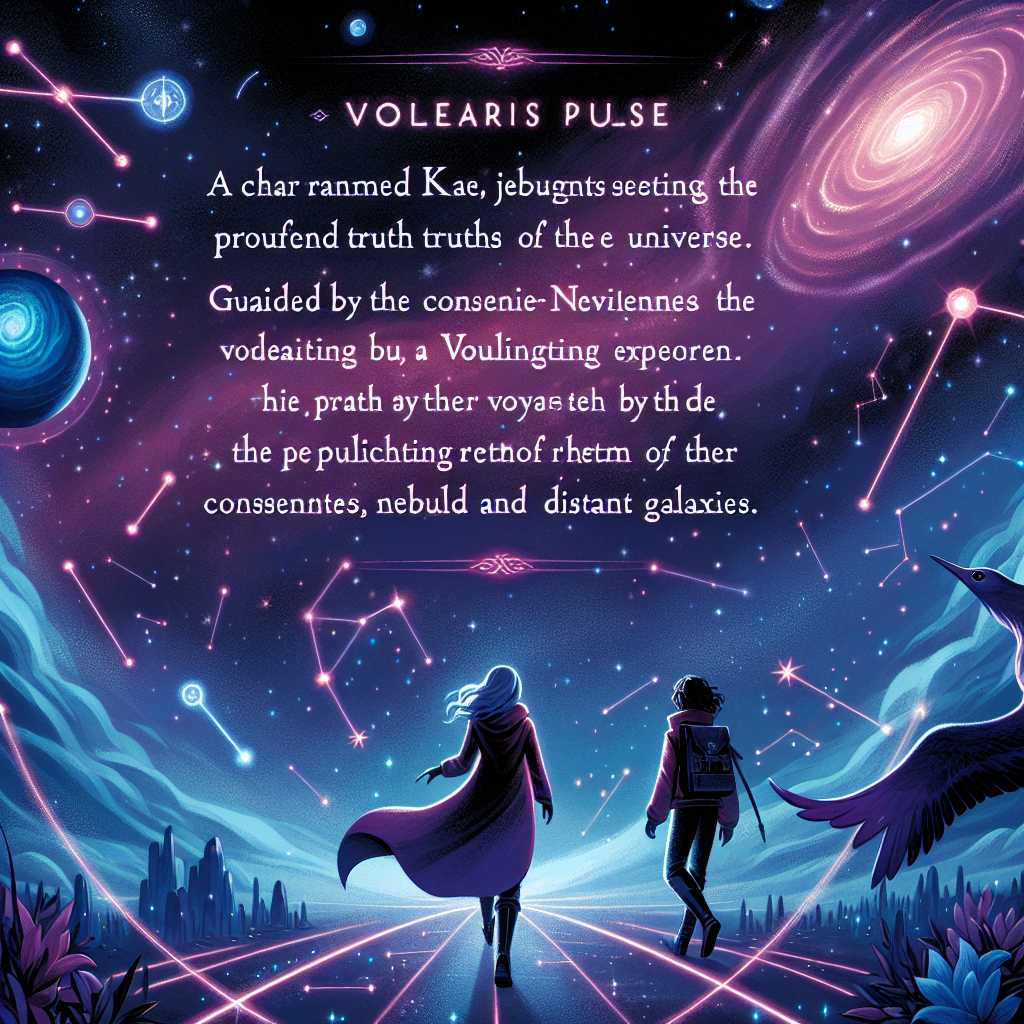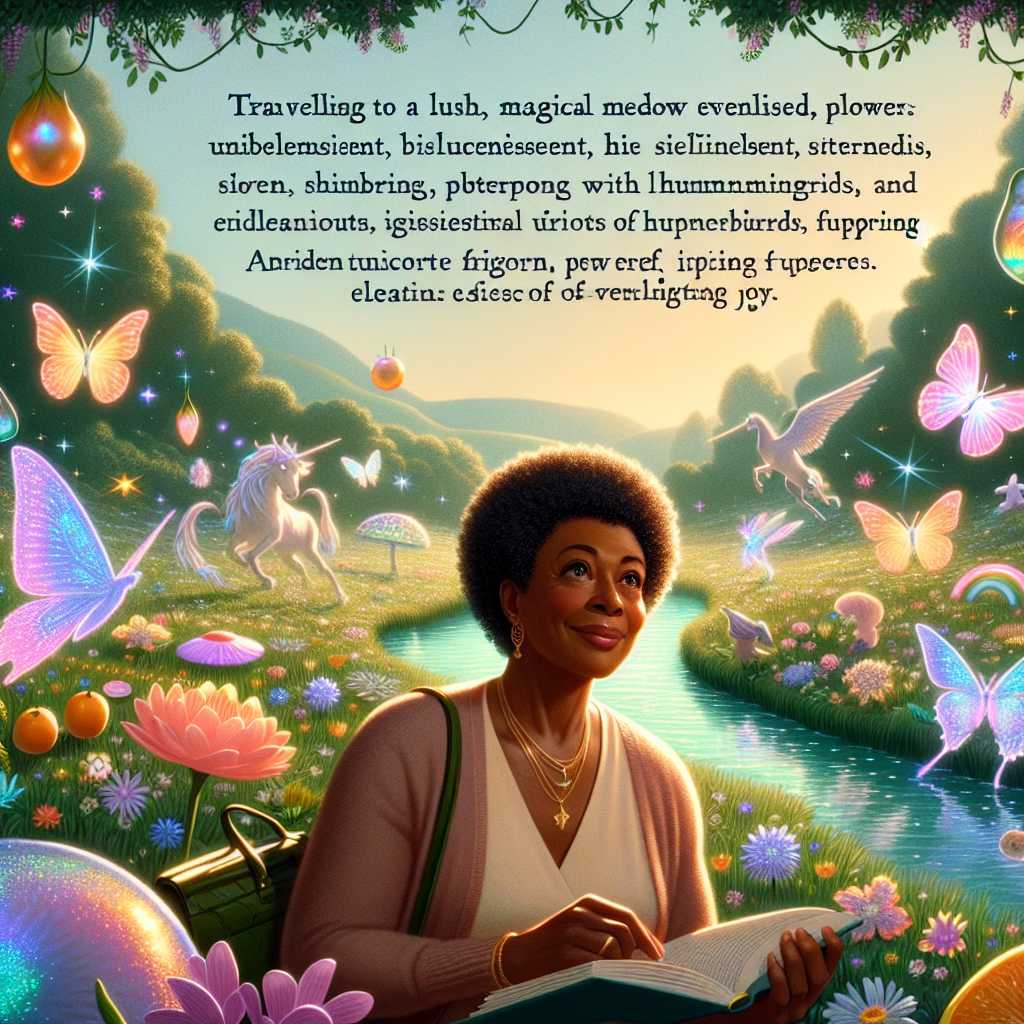
Under the vast, unending sky of the American West, where horizons seemed to stretch forever, there was a small, dusty town called Lonesome Creek. It wasn’t the kind of place where folks ever made their fortune, but it was a place where people carved out a life, however meager it may have been. Life at Lonesome Creek was slow and hard, tested daily by the whims of the desert winds and the arid sun.
The people of Lonesome Creek were strong, resilient, and bonded by the solitude that the vast prairie delivered. Among these sun-baked settlers was a man named Hank Doolin, a rugged cowboy with a demeanor as weathered as the landscape itself. Hank's tale was woven into the fabric of Lonesome Creek, and it’s a tale worth sharing.
They say that Hank was born with dust in his lungs and grit in his soul. From a young age, he had called these barren lands home, and he wouldn’t have it any other way. Hank’s father was a cattle rancher, and his mother, well, she was a legend in her own right for her indomitable spirit and the pioneer blood that ran through her veins.
“This land is as tough as old boots,” Hank’s father used to say, drawing out each word slowly. “But it’s ours, Hank. And don’t you ever let no one tell you different.”
The words stuck with Hank like the desert sun at midday. He swore to himself that he would never leave this patch of earth for anything less than a good reason, and no opportunity sparkled brighter than the one offered by those dusty plains.
There was, however, a growing unrest in Lonesome Creek as of late. A local rancher by the name of Jed Collins had been stirring trouble among the good folk. Jed fancied himself quite the entrepreneur, and he had big plans for Lonesome Creek—plans that involved running folks like Hank off their land, replacing the homes they loved with sprawling cattle empires.
Hank’s mother had passed on, and with his father’s health failing, the responsibility of safeguarding their family’s ranch fell solely upon Hank’s shoulders. He had to stand against Jed's encroaching influence, but even his stubborn spirit knew that one man alone could only hold out for so long.
One evening, as the sun sank into the horizon in a blaze of orange glory, Hank sat by the old timber fence overlooking his land. His mind was a smoldering flame of worry, uncertainty flickering in his eyes. That’s when he heard the clatter of hoofbeats approaching on the dusty trail.
The rider who topped the little rise was a stranger—a woman, draped in a coat that whipped in the evening breeze. Her horse galloped with the kind of freedom only the West knew. She reined in close and fixed Hank with a steady gaze.
“You Hank Doolin?” she asked. Her voice was smooth and unwavering.
“Depends on who’s asking.” Hank replied, his usual defenses rising like canyon walls.
“The name’s **Clara Redfern**. I heard you’ve got a knack for cowboying. I reckon you might need some help if the tales about Jed Collins are true.”
Hank studied Clara, noting the practiced ease with which she dismounted and the well-worn Colt peeking from beneath her slicker. There was a fire in her eyes that mirrored the sunset's dying embers. Whatever her reasons, she was no ordinary traveler.
As the night draped its shadowy cloak over Lonesome Creek, Hank found himself warming to the idea of an ally. Over strong coffee by lamplight, Clara detailed her own run-ins with land grabbers like Jed. She explained that she was just drifting through, following the wind, but if help was needed, she'd oblige. Hank didn’t know if it was fate or plain luck, but he was grateful for both.
The days that followed transformed the barren landscape into a stage for defiance. Hank and Clara worked tireless hours, shoring up defenses and riding the dusty cattle trails. Their resolve caught fire among other ranchers and homesteaders who had been feeling the pinch of Jed's machinations. Under the wide Western sky, a new kind of kinship took root.
The final showdown arrived as whispers rode the wind. Jed brought his hired guns into the fray, his sights set on sinking Lonesome Creek beneath the weight of his ambition. But Hank and Clara had woven a tapestry of allies, each ready to stake their claim to justice and the land they called home.
Their standoff came under a sky brooding with storm clouds, rumbling as if to echo the tension that hung in the air. Hank faced Jed, his eyes steady, unshed rage simmering beneath the surface.
“You oughta leave while you still can, Jed,” Hank warned. “This here town ain't for the takin'.”
Jed sneered, arrogance wrapped around him like a rattler ready to strike. But it was Clara’s silent, unwavering presence that seemed to give him pause. Maybe it was the weight of the gathered forces, bodies steeled for conflict, that finally broke Jed's reign of intimidation.
The confrontation ended not with drawn guns but with Jed’s retreat—eclipsed by the determination of a town unwilling to be broken. As the storm broke over Lonesome Creek, torrents washed away the dust and left the land clean and alive.
Under the vast expanse of the Western sky, Hank knew that life would weave on, and though the tales of Lonesome Creek might fade with time, its spirit would forever be etched in the rough soil he called home. And somewhere out there, chasing the horizon, Clara Redfern disappeared, leaving behind the legacy of a wanderer who stopped to change a piece of the world.
In the end, as it often is with Western stories, it wasn’t just about good versus bad, or standing your ground. It was about finding where you belong, and cherishing what is yours: the land, your people, your own story.










